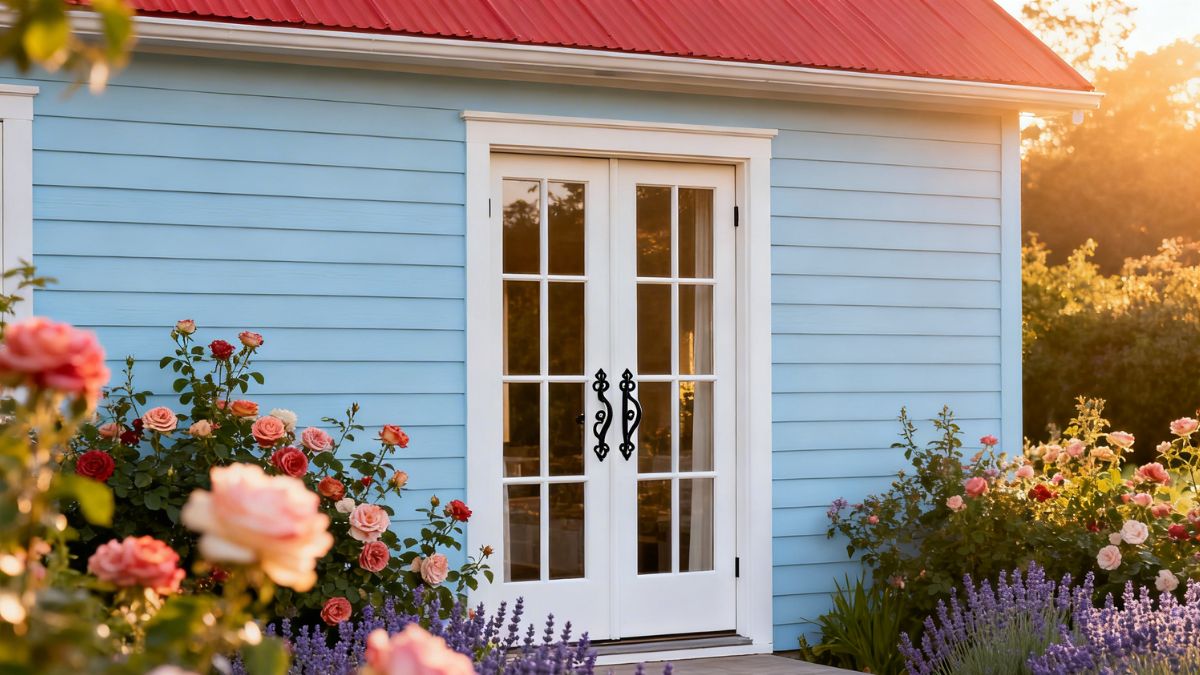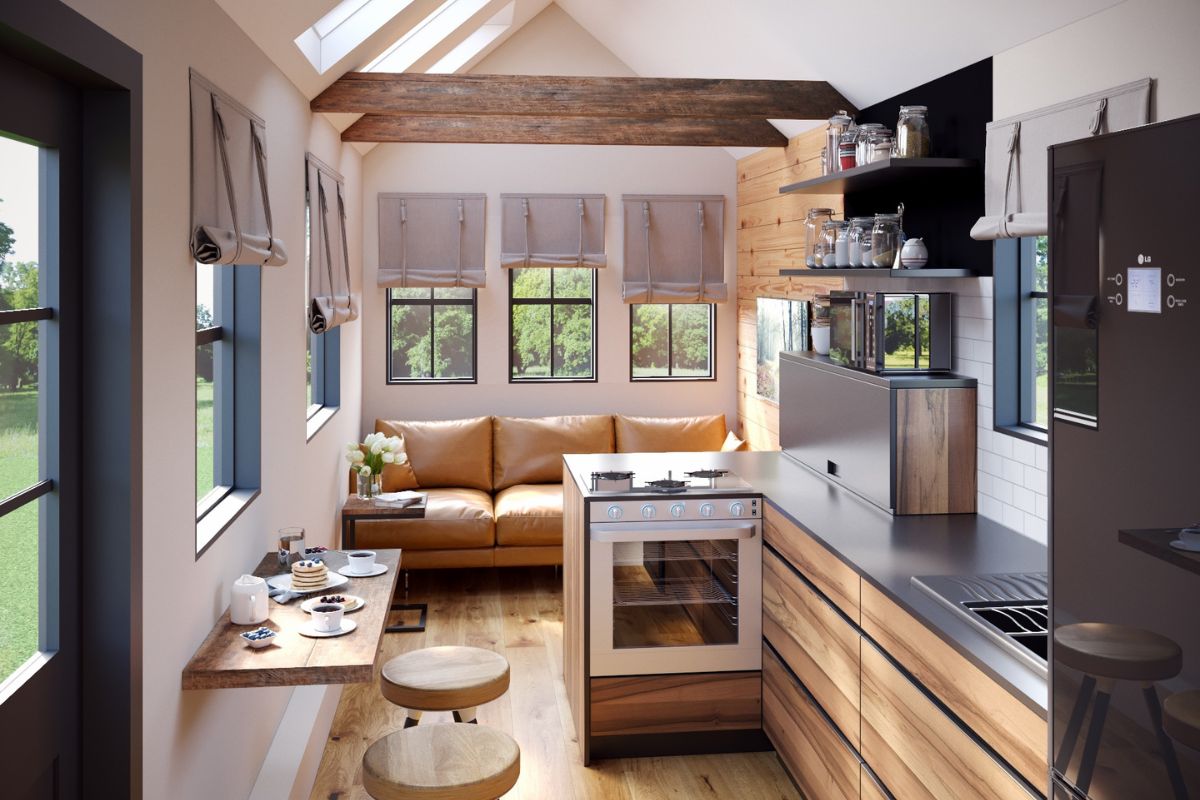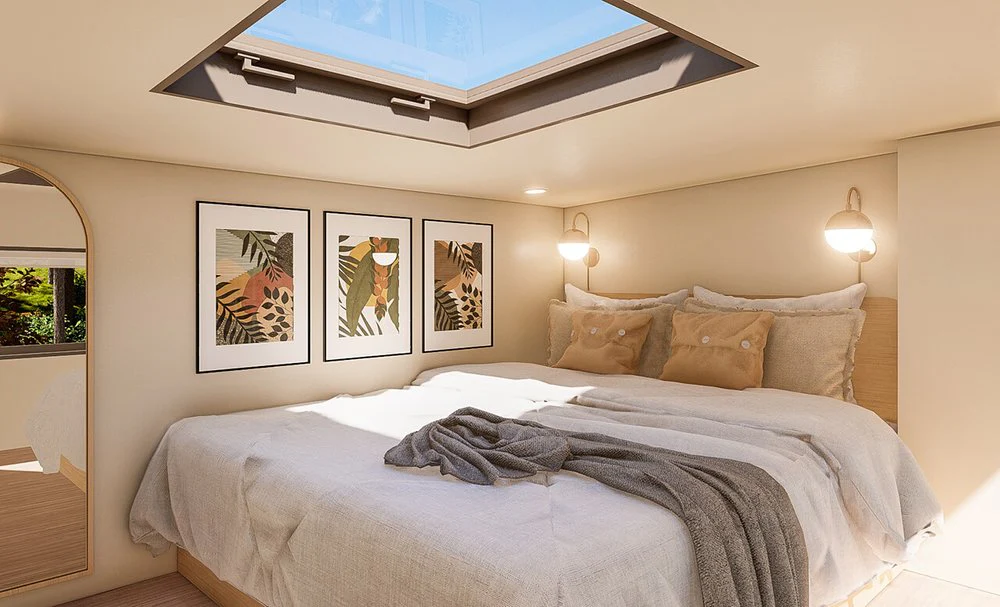Journey into Living in a Tent Full Time

Photo by Frederick Shaw on Unsplash
There are numerous tiny house success stories that inspire a lot of people to try out living in a tiny house full time. One of its varieties include tents that showcase living nomadic and outdoors. The decision to live in a tent full time is not one that's made lightly. It requires a significant shift in perspective, lifestyle, and priorities. But for those who choose this way of life, the rewards are abundant.
Explore what it's like to live in a tent full time and why some people find it a truly fulfilling way to exist.
- Living in a tent full time allows for a simpler life.
- Tent living is synonymous with minimalism.
- Residing in a tent offers an immersive experience with nature.
- Tent living inherently promotes sustainability.
- While the benefits of tent living are significant, it comes with unique challenges.
Prioritizing Simplicity Over Excessiveness
One of the primary incentives for adopting a full-time tent life is a yearning for a simpler life. In a society that incessantly promotes the notion that more equates to better, the appeal of larger homes, increased possessions, and more luxurious vehicles can be overwhelming and, paradoxically, unfulfilling.
Living within the confines of a tent obliges you to assess the elements that are genuinely indispensable in your life. You must reduce your belongings to the absolute essentials, and, through this process, you often come to the realization that contentment can be achieved with less. The simplicity inherent in tent living can be emancipating, enabling a redirection of focus towards experiences, relationships, and personal development, rather than an accumulation of material goods.
Embracing the Tenets of Minimalism
Minimalism is a philosophical standpoint that has been gaining traction recently, and residing in a tent harmonizes seamlessly with this ideology. Minimalism encourages individuals to reduce unnecessary clutter, eliminate surplus possessions, and emphasize what holds genuine significance. It is about shedding the inessential to make room for what is truly meaningful.
When one opts to live in a tent full time, minimalism is not a mere fashionable concept but it becomes a way of life. You will find that you own fewer belongings, and each item you possess serves a distinct purpose. In a tent, there is no space for extravagance, and this enforced minimalism frequently culminates in a sense of liberty and contentment.

Fostering a Connection with Nature
One of the most profound advantages of living in a tent is the unique and constant connection with the natural environment that it nurtures. In a world where many of us spend the majority of our lives enclosed within four walls, often disconnected from the world outside, tent living grants the opportunity to be entirely immersed in the beauty and tranquility of the great outdoors.
Each day commences with the melodious symphony of birds and the rustling of leaves, and the evenings are accompanied by the gentle lullaby of crickets, beneath the magnificent expanse of a star-studded sky. Residing in a tent encourages heightened sensitivity to the rhythms of the natural world, from the changing seasons to the ascent and descent of the sun. Such an existence cultivates an enhanced appreciation for the environment, often leading to a profound desire to conserve and safeguard it.

Sustainability and Eco-Friendly Living
Living in a tent tends to be, by nature, more sustainable than traditional housing. The ecological footprint of constructing, maintaining, and heating or cooling a sizable house is substantial. In contrast, residing in a tent often translates to a diminished environmental impact. Tents are typically fashioned from lightweight, recyclable materials, and the reduced consumption of energy results in fewer emissions of carbon.
Many tent-dwellers also adopt ecologically responsible practices, such as composting, collecting rainwater, and harnessing solar energy for their power requirements. This eco-conscious way of life aligns with the growing global awareness of the necessity to combat climate change and protect the planet.
Challenges and Deliberations
While the advantages of living full-time in a tent are apparent, it is crucial to recognize that it comes with a distinct set of obstacles. Adverse weather conditions can render life in a tent uncomfortable or even dangerous, and residing in a tent means forgoing many modern conveniences. Everyday tasks, such as cooking, bathing, and staying warm, can be more labor-intensive and less comfortable.
Aside from this, living continuously in a tent often necessitates a shift in priorities and expectations. It may not be a suitable choice for everyone, particularly those with families or individuals who place value on a stable, traditional domestic life. It can also pose difficulties in terms of securing employment and accessing healthcare and education, as remote locations and limited resources may pose obstacles. However, there are modern solutions that can counter the challenges that one might experience when living in a tent.
Preparations and What to Consider
Embracing the tent living lifestyle entails an immersion into outdoor living. Preparing for long term camping situations is crucial for survival, which means learning about the area and other survival skills. Nowadays, interest in survival skills is rising which means it’s a must for everyone. But remember, it's not just about surviving, it's about thriving and growing amidst nature's beauty.
Deciding to Embrace Tent Living
The decision to live full-time in a tent is a profound transformation in lifestyle that signifies a desire for simplicity, a profound connection with nature, and a commitment to sustainability. It serves as a deliberate rejection of the excesses of modern consumerism and an embrace of minimalism. Although it comes with its share of challenges, those who embark on this journey often find that the rewards greatly outweigh the sacrifices.
Living in a tent is a symbol of the human capacity for adaptation and finding contentment with less. It is an affirmation of the significance of prioritizing experiences over possessions and recognizing the intrinsic value of a life more closely intertwined with nature. While it may not be the right choice for everyone, it serves as a potent reminder that there is more than one path to happiness and fulfillment in this world.







.jpg)


